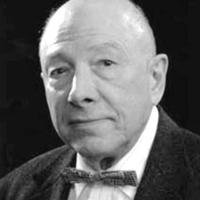Lawrence Markus
In Memoriam
The School of Mathematics was saddened to learn of the passing of Regents
Professor Emeritus Lawrence (Larry) Markus on January 18, 2020, at the age
of 97.
Larry was born in Hibbing, Minnesota on October 13, 1922. Shortly
thereafter, his family moved to Minneapolis and then to the Chicago area.
After high school, Larry attended the University of Chicago, where he
obtained his baccalaureate degree in mathematics in 1942 at the age of 19.
Following this, Larry joined the graduate program in the department of
meteorology at Chicago, where he served as an instructor 1942-44 and
received his master's degree in 1946. Along the way, Larry served briefly
(in 1944) as a research meteorologist for the Manhattan Atomic Project at
the Hanford site and then volunteered for military duty (1944-46), serving
as chief meteorological officer on a naval weather frigate (the U.S.S.
Peoria) in the North Atlantic.
After receiving his master's degree, Larry moved to Harvard University,
where he obtained his Ph.D. in mathematics in 1952 under the direction of
Garrett Birkhoff with a dissertation entitled "A Topological Analysis of
Differential Equations in the Large''. Larry served as instructor at
Harvard, 1951-52. During the preceding academic year, Larry combined his
Fulbright Fellowship in Paris with a honeymoon with his wife, Lois,
following their marriage in December 1950.
Following his Harvard Ph.D., Larry remained in the Ivy League for five more
years, holding instructor and lecturer positions at Yale and Princeton,
respectively, during 1952-55 and 1955-57. Larry joined the School of
Mathematics at the University of Minnesota in September 1957. Beginning as
assistant professor, Larry quickly rose through the ranks to become full
professor in 1960; in 1980, he was given the great honor of being named
Regents Professor, a position that he held until his retirement in 1993.
During the period 1952-1993, eleven students finished their Ph.D.'s under
Larry. In 1963, Larry co-founded (with E.B.Lee) the Center for Control
Science in the Institute of Technology here at UM; he served as its
director, 1965-73. The center ultimately morphed into the Center for
Control Science and Dynamical Systems, with Larry again at its helm
1980-89.
Larry's reputation in control science led to his being invited to join the
mathematics faculty at the University of Warwick (in England) in 1968 as
professor in order to set up a similar center of control science there. For
the next 25 years, Larry alternated between Warwick and Minneapolis, always
accompanied by his wife, Lois, and (at least initially) their children,
Andrew and Sylvia. Larry served as director of the Warwick Centre for
Control Theory during 1970-73, and held Warwick's Nuffield and Leverhulme
professorships for various periods prior to retiring from Warwick as
Honorary Professor in 1993.
Highly regarded internationally, he was best known for his work in
dynamical systems, control theory, ordinary differential equations, and
mathematical models in cosmology. In 1974, he was an invited speaker at the
International Congress of Mathematicians in Vancouver. A look at
MathSciNet and assorted department records reveals that Larry was either
the author or co-author of at least 101 published papers, 4 monographs, 11
memoirs and lecture notes, and 10 technical reports. (Curiously, the work
for one monograph and three memoirs on this list was done after 1993.)
Larry's co-authors included Louis Auslander, Shizuo Kakutani, Eugenio
Calabi, Norrie Everitt, Neal Amundson, Hidehiko Yamabe, E. Bruce Lee,
George Sell, and Walter Littman. The last three were, of course, long-time
colleagues of Larry here at Minnesota (Lee in electrical engineering).
Larry's most often cited book, Foundations of Optimal Control Theory, was
a joint effort with Lee, written while Larry was a Guggenheim Fellow.
Larry had a colorful style. This quality was appreciated by undergraduates;
in 1968, Larry received the university's Distinguished Teacher Award. The
fact that Larry, attired in coat and tie, typically showed up for his
classes a few minutes early with a water bucket and squeegee to properly
clean the board before starting any math may well have played some role in
this!
In a not wholly unrelated direction style-wise, it might also be mentioned
that one of Larry's great passions in life was table tennis: he was
Minnesota State Champion in 1965, and played his last game in 2008 at the
age of 86.
In the preface to the festschrift volume Differential Equations, Dynamical
Systems, and Control Science in honor of Larry's 70th birthday, Norrie
Everitt recounts for readers that: "There is a videotape of Larry's lecture
to the Royal Institution in London in the year 1982. The lecture was
designed to give (and succeeded in doing so) young scientists at school
level a glimpse of modern mathematical ideas. If you wish to see Larry
playing a guitar and singing like a professional, then here is your
opportunity. To this there is the added attraction of a wonderful
assistant to aid Larry in his endeavors with the young: Lois Markus.''
Larry was known for his witty stories and conversation, especially on
historical matters. As a result, having lunch with Larry was always a
treat. This was true even in the last few months of his life, as his
memory and mind remained sharp, and he easily conversed about mathematical
theorems and the many famous mathematicians he had interacted with over his
long life. Larry's vitality and sense of humor (and reports on his
bookwriting!) invariably left one feeling both upbeat and inspired for the
rest of the day.
Larry was a prominent figure in the School of Mathematics for many years.
He will be greatly missed by his colleagues and former students.
